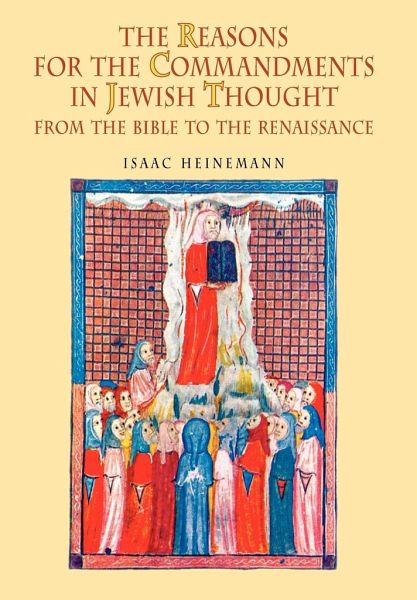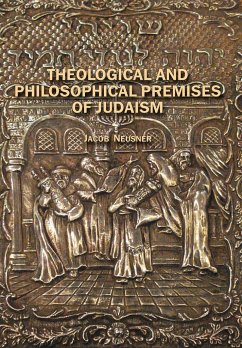
The Reasons for the Commandments in Jewish Thought. from the Bible to the Renaissance
Versandkostenfrei!
Versandfertig in über 4 Wochen
50,99 €
inkl. MwSt.

PAYBACK Punkte
25 °P sammeln!
This classic work by early-20th-century Jewish humanist and scholar Isaac Heinemann surveys the crucial phases of Jewish thought concerning correct conduct as codified in the commandments. Heinemann provides his own systematic insights about the intellectual, emotional, pedagogical, and pragmatic reasoning advanced by the major Jewish thinkers. This volume covers Jewish thinkers from the Bible, rabbis and Hellenistic philosophers through the Middle Ages and the Renaissance, including Saadiah, Halevi, Maimonides, Albo, and many others. Heinemann addresses such questions as: "What were the Bibli...
This classic work by early-20th-century Jewish humanist and scholar Isaac Heinemann surveys the crucial phases of Jewish thought concerning correct conduct as codified in the commandments. Heinemann provides his own systematic insights about the intellectual, emotional, pedagogical, and pragmatic reasoning advanced by the major Jewish thinkers. This volume covers Jewish thinkers from the Bible, rabbis and Hellenistic philosophers through the Middle Ages and the Renaissance, including Saadiah, Halevi, Maimonides, Albo, and many others. Heinemann addresses such questions as: "What were the Biblical, rabbinic, medieval, and modern rationales offered for the commandments in the course of Jewish thought?"












